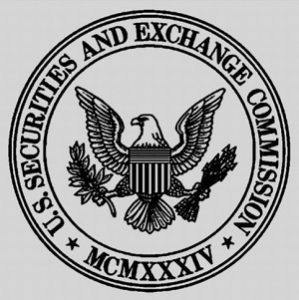 Washington D.C., May 23, 2019 — The Securities and Exchange Commission filed a civil injunctive action against Daniel Pacheco, a resident of San Clemente, California, and the alleged perpetrator of a multimillion-dollar pyramid scheme.
Washington D.C., May 23, 2019 — The Securities and Exchange Commission filed a civil injunctive action against Daniel Pacheco, a resident of San Clemente, California, and the alleged perpetrator of a multimillion-dollar pyramid scheme.
The SEC’s complaint, filed Wednesday, alleges that from January 2017 through March 2018, Pacheco conducted a fraudulent, unregistered offering of securities through two California-based companies he controls, IPro Solutions LLC and IPro Network LLC (collectively, “IPro”). IPro raised more than $26 million from investors by selling instructional packages that provided lessons on e-commerce. Investors also received “points” that could be converted into a digital asset known as PRO Currency. Investors who contributed additional funds could earn a mixture of cash commissions and additional convertible points by recruiting new investors into the IPro network. As alleged in the complaint, however, IPro was a fraudulent pyramid scheme. IPro’s inevitable collapse was hastened by Pacheco’s fraudulent use of investor funds, which included, among other things, the all-cash purchase of a $2.5 million home and a Rolls Royce. Pacheco’s misappropriation accelerated the rate at which IPro became unable to pay the commissions and bonuses due its investors.
The complaint further alleged that Pacheco’s offer and sale of IPro instructional packages constituted an unregistered sale of securities because the IPro instructional packages involve (i) an investment in a pyramid scheme; and/or (ii) an investment in the PRO Currency digital assets, and therefore must be registered with the SEC unless an exemption applies. No registration exemption applies to Pacheco’s offer and sale of IPro instructional packages.
“We allege that Pacheco hid an old fraud under the guise of cutting-edge technology,”said Michele Wein Layne, Director of the SEC’s Los Angeles Regional Office. “He enticed investors by offering them the opportunity to speculate in cryptocurrency, when in fact he was simply operating a pyramid scheme.”
The SEC’s complaint, filed in U.S. District Court for the Central District of California, charges Pacheco with violating Sections 5(a), 5(c), 17(a)(1) and 17(a)(3) of the Securities Act of 1933 and Section 10(b) of the Securities Exchange Act of 1934 and Rules 10b-5(a) and (c) thereunder. The complaint also names seven relief defendants for the purpose of recovering investor proceeds in their possession that must be returned. The SEC does not allege wrongdoing with respect to these relief defendants.
The SEC’s investigation was conducted by Peter Del Greco, Eric Shu and Maria Rodriguez, and supervised by Marc Blau, of the Los Angeles office, with the assistance of trial attorney Gary Leung, who will lead the litigation.












